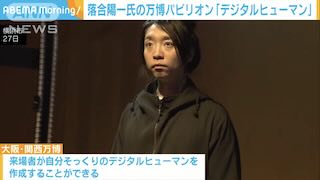TOKYO, Apr 11 (News On Japan) - Unauthorized use of photos and voices in "fake advertisements" on social media is on the rise, with entrepreneurs Yusaku Maezawa and Takafumi Horie urging swift action to stamp them out.
Investment Fraud on Social Media Results in 27.8 Billion Yen in Damages
Maezawa and Horie visited the Liberal Democratic Party headquarters in Nagatacho on Wednesday, called upon by a party committee.
Former Digital Minister Takuya Hirai stated, "We like to think we can spot lies, but even we can be fooled. Considering the healthy development of the internet, we cannot overlook this issue."
Have you seen ads like this on social media recently?
Fake Ad Example
"Hello. I'm 'Yusawa Zenzaku,' introducing a new investment project that promises high income to Japanese people. This project is based on artificial intelligence and can ensure success in 'governmental deception.' No special skills are required. Join the project now and achieve effortless income in a matter of days."
There are also fake ads purportedly from Horie.
Fake Ad Example
"Investors worldwide believe now is the best time to trade FX."
While some ads may look unnatural at a glance, their common theme involves "investment." These are all deceptive ads.
SNS-type investment fraud has rapidly become a crime with increasing damage amounts. Last year alone, the total damages amounted to approximately 27.79 billion yen.
Tokyo Metropolitan Police Department Superintendent General Sadayuki Ogata noted, "While the total damage amount from different fraud types, 'It's me fraud' remains high, we are seeing a surge in damages from new scams such as 'phantom fee fraud' under the guise of antivirus support, 'SNS-type investment fraud,' and 'romance scams'..."
Notably, ads exploiting celebrities' faces and names to promote investments have scattered across the internet, posing a problem. These individuals are, of course, unaffiliated and have not granted any permissions.
Journalist Soichiro Tahara cautioned on Twitter, "I don't invest. Please be careful not to be deceived."
Use of Generative AI to Replicate Personal Voices
Videos and images created by AI, known as deepfakes, can now be easily produced.
Director Hiromi Terasaki explained, "With this program, you can make it speak anything you like, resembling the person's voice, by registering just a few seconds of their voice. We registered the voice of broadcaster Takeshi Okoshi from a news program and then added a fake script promoting investment."
Typing the text and embedding the generated audio into a fake ad image results in...
Generated Voice
"Good evening. This is Kensuke Okoshi. Today, I'd like to introduce you to an investment project that will bring you high income."
In recent years, Japan has been promoting the shift from "saving to investing."
Junichi Nakajima, Commissioner of the Financial Services Agency (as of June 2023), said, "The NISA system is intended to be a user-friendly asset-building scheme that national citizens, especially investment beginners, can use with confidence."
However, the complexity of investment remains a fact. When inexperienced individuals are approached by those proficient in economics offering to "teach investing" or "share stock picks"...
A 19-year-old college student said, "If I see a celebrity featured, I might think about giving it a try, wondering if I could succeed too."
Yusaku Maezawa to Sue Meta
The modus operandi of SNS-type investment fraud involves impersonators interacting via LINE and other platforms to swindle money. The entrance to these scams often lies in ads predominantly on Facebook and Instagram, operated by Meta.
In response to inquiries from TV Asahi, Meta commented, "Our advertising policy prohibits promoting products, services, schemes, or offers using fraudulent or misleading methods, including attempts to steal money or personal information."
However, Maezawa and others are dissatisfied with the response.
Maezawa sent a lawyer's letter to Facebook Japan requesting the removal of impersonation ads, to which the reply was "Talk to our headquarters." Subsequently, a letter was sent to Meta's headquarters, which responded, "Complete elimination is impossible, so we seek your understanding."
Maezawa stated, "I really dislike this. But I've been victimized too, and above all, people are suffering from fraud.
Source: ANN















